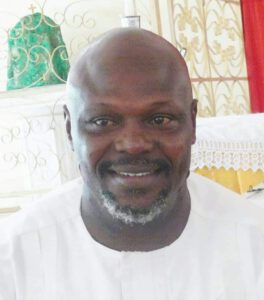Speaking yesterday at an event to mark the 30th anniversary of the corps in Abuja, Corps Marshal, Federal Road Safety Corps, FRSC, Dr. Boboye Oyeyemi, has cleared the air on the operational routes of the corps, saying his men have the mandate to operate on both federal and state roads nationwide as well as powers to bear arms.
Oyeyemi said the FRSC Establishment Act 2007 in Section 19 provides the power for the Corps to bear arms. He said that the rising case of aggression and unwarranted mob attacks by motorist on patrol teams and commission’s officers nationwide, the militarization of the civil populace, growing resurgence of ethnic militia and the armed robbery on the highways justified the request for the bearing of arms by the commission’s staff.
He disclosed that in 2005 alone, the commission recorded 70 cases of violent attacks by motorists, road users and armed robbers noting that the commission has since trained many of its officers and marshals on weapons handling both within and outside the country.
“The training kick-started with United State of America training four officers namely; Yemi Oyeyemi, Kayode Olagunju, Charles Akpabio and Tope Akintoye in USA in 1992 and other officers and marshals at the 82 Division of the Nigerian Army in Enugu same year.”
Recall that in February last year, there were reports that Kaduna State government banned the FRSC from mounting checkpoints in Kaduna metropolis and other urban centres in the state, though it was later debunked by the government that it lacks powers to stop a federal agency to operate legally on state roads.
“Some people are still confused if we have powers to operate on state roads. Degree 45 of 1988 restricted FRSC operations to Federal Highways but Degree 35 of 1992 expanded our jurisdiction to cover all public highways in the country and also empowered the personnel of the corps to bear arms.”
He said the commission has grown from the manpower of 300 in 1998 saying, “we now have 20860, 15000 special marshals and 50,000 road safety corps.”
Some of the achievements of the corps includes but not limited to, introduction of electronic pay slip using U-Pay platform, Training of 40 FRSC personnel as accident Investigators by North-Western University, California, USA, introduction of FRSC Housing scheme, Lokogoma, Development of FRSC road map, introduction of Safety Standard for school bus operations in Nigeria.
Others include, introduction of ‘Emergency Numbers’ 0700-CALLFRSC, Introduction of new national driver’s licence, Movement to permanent headquarters office structure, Introduction of ‘toll-free’
emergency numbers 122, development of a National Road Traffic Crash Data Collection template, Upgrading of dashboard to e-dashboard, ISO 9001:2008 certification, building of FRSC armoury, arms training for officers and marshals and many more.
Speaking further, he disclosed that before the end of the year, road signs will be placed in all the roads in the country.
Oyeyemi also called on the stakeholders to join hands with the commission to ensure a road crash free
by the next decade.
In his Address at the occasion, Secretary to the Government of the Federation, Mr Boss Mustapha, explained federal government’s priority for the safety of lives of Nigerians, which he said informed the
establishment of the FRSC in the first place in 1988.
Exactly 30 years ago, the federal government, through the instrumentality of Decree 45 of 1988, as amended by Decree 35 of 1992, now Cap 141, laws of the federation, established the Federal Road Safety Commission as the lead agency for road safety management and traffic administration in the country.
“The enabling laws were repealed with the enactment of the FRSC Establishment Act 2007, under the
democratic dispensation, to enable the organization meet the current road safety challenges nationwide.
“The establishment of the Road Safety Commission as the lead agency for road safety management, traffic administration in the country, remains the most comprehensive attempt by the federal government to address the menace of road traffic crashes in the country through continuous use of
institutional building, education and human capacity development and enforcement strategy,” the SGF posited.
He further asserted that since its establishment, the commission had not disappointed in the discharge of its constitutional mandate.
“The existence of the Federal Road Safety Commission, therefore, demonstrates government’s concern
for the safety of road users across the country. Since the establishment of the Federal Road Safety Commission 30 years ago, it has continued to demonstrate commendable ability to road traffic management and safety administration through the use of public enlightenment instrument, technological enhancement through rules and regulations. Interestingly, these strategies have led to reduction in road traffic accidents and increased safety on our roads,” he noted.
In his goodwill message, the Chief of Army Staff, Lt.-Gen Tukur Baratai dramatically elucidated the value he personally places on the FRSC and its activities.
He disclosed his sacking of his domestic staff whom he said assaulted an FRSC personnel in the course of
discharging his official duty on the road.
Others who gave their goodwill messages for the corps included former military president, General Ibrahim Babangida in whose regime represented the Federal Road Safety Corps was established, represented by Mallam Murtala Aliyu; FCT Minister, Mallam Mohammed Bello, represented by the permanent secretary of the FCT, Mr Christian Chinyeaka; Minister of Agriculture and Rural Development, Chief Audu Ogbe, representatives of the Senate president and speaker of the House of Representatives.



